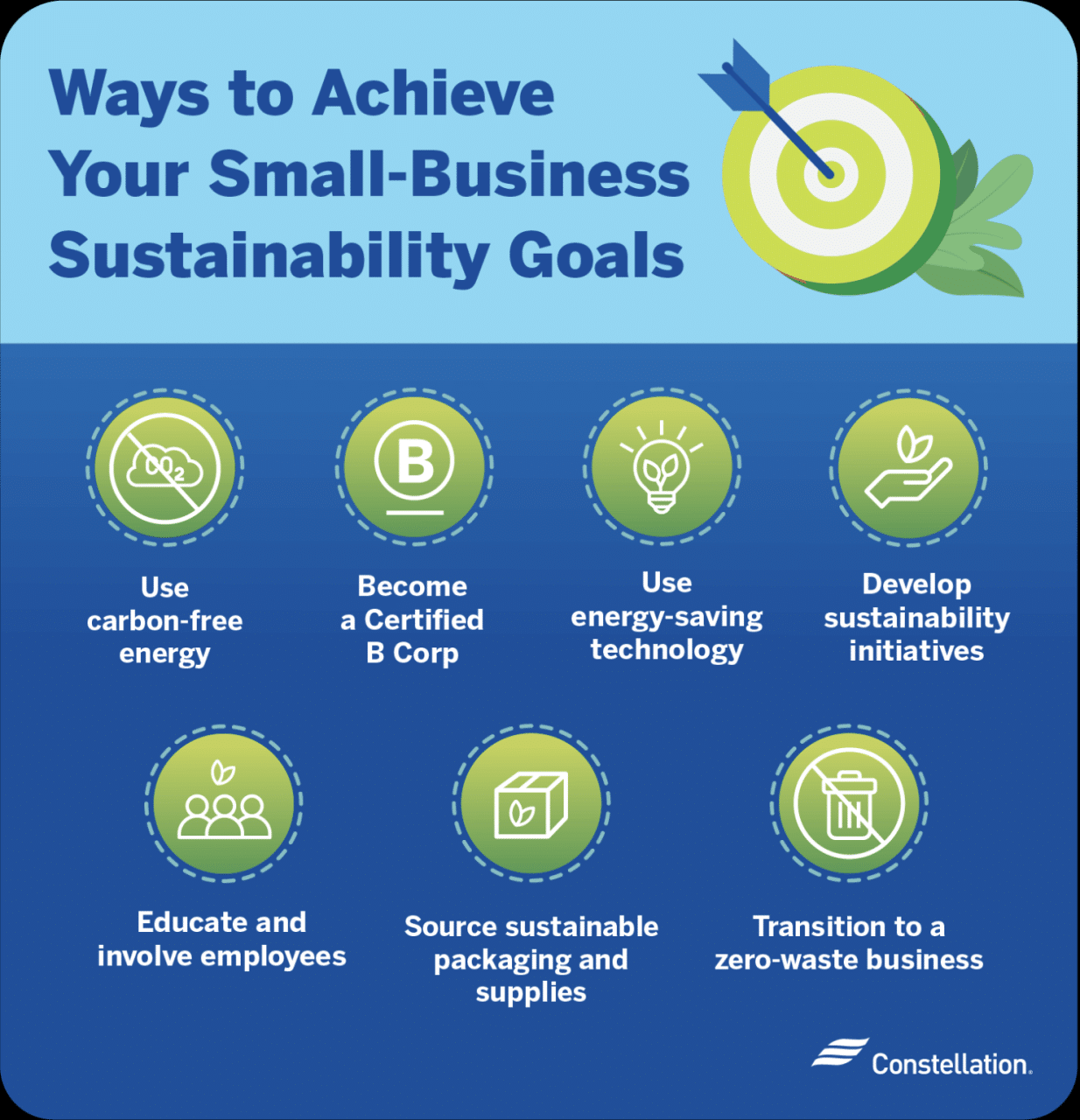“The importance of sustainable practices in small business operations
Related Article The importance of sustainable practices in small business operations
- The Pros And Cons Of Using A Financial Advisor: Is It Worth The Cost?
- De-dollarization: What to Anticipate?
- How To Negotiate A Raise: Tips And Strategies
- The Benefits Of Investing In A Roth IRA: A Guide To Retirement Savings
- The Pros And Cons Of Investing In Real Estate: Is It A Smart Move?
Table of Content
Video The importance of sustainable practices in small business operations
The importance of sustainable practices in small business operations

As the world grapples with the challenges of climate change, environmental degradation, and social inequality, small businesses are increasingly playing a crucial role in promoting sustainable practices. In recent years, consumers have become more aware of the environmental and social impact of their purchasing decisions, and are now seeking out businesses that share their values. As a result, adopting sustainable practices has become a key strategy for small businesses to stay competitive, build customer loyalty, and contribute to a more sustainable future.
In this article, we will explore the importance of sustainable practices in small business operations, including the benefits of going green, strategies for implementing sustainable practices, and examples of successful sustainable businesses. We will also discuss the challenges of implementing sustainable practices and provide tips for overcoming them.
Why sustainable practices Matter in small business
sustainable practices are essential for small businesses to remain competitive in today’s market. By adopting eco-friendly practices, small businesses can:
- Reduce costs: Implementing sustainable practices can help reduce energy consumption, waste, and costs associated with raw materials. For example, switching to energy-efficient lighting can save a small business up to 70% on energy costs.
- Enhance brand reputation: Consumers are more likely to support businesses that share their values and are committed to sustainability. A sustainable business model can help build customer loyalty and increase brand reputation.
- Comply with regulations: Governments are increasingly implementing regulations to reduce environmental impact, and small businesses must comply with these regulations to avoid fines and reputational damage.
- Attract talent: Employees are more likely to be attracted to businesses that share their values and are committed to sustainability. A sustainable business model can help attract and retain top talent.

Strategies for Implementing sustainable practices
Implementing sustainable practices can seem daunting, but there are many strategies that small businesses can use to get started. Some of these strategies include:
- Conduct a sustainability audit: Identify areas of the business that can be improved and prioritize changes.
- Reduce energy consumption: Install energy-efficient lighting, turn off equipment when not in use, and use renewable energy sources.
- Implement recycling programs: Recycle paper, plastic, and glass, and compost food waste.
- Use eco-friendly products: Choose products that are made from sustainable materials, have minimal packaging, and are biodegradable.
- Source locally: Buy from local suppliers to reduce transportation emissions and support the local economy.
- Engage employees: Educate employees on sustainable practices and encourage them to participate in decision-making.
- Monitor and measure progress: Track progress and adjust strategies as needed.

Examples of Successful sustainable Businesses
There are many examples of small businesses that have successfully implemented sustainable practices. Some of these businesses include:
- Outdoor apparel company Patagonia: Known for its commitment to sustainability, Patagonia has implemented environmentally-friendly manufacturing processes, sourced sustainable materials, and encouraged employees to participate in environmental activism.
- Brewery Sierra Nevada: Sierra Nevada has implemented a comprehensive sustainability program that includes reducing energy consumption, sourcing locally, and implementing recycling programs.
- Food company Seventh Generation: Seventh Generation has made a commitment to sustainability through its products, packaging, and manufacturing processes. The company has implemented eco-friendly packaging, sourced sustainable materials, and reduced energy consumption.
Challenges of Implementing sustainable practices
Implementing sustainable practices can be challenging for small businesses, as they often require significant investment and changes to operations. Some of the challenges of implementing sustainable practices include:
- Financial constraints: small businesses may not have the resources to invest in sustainable practices, such as energy-efficient equipment or recycling programs.
- Limited knowledge and expertise: small businesses may not have the knowledge or expertise to implement sustainable practices effectively.
- Resistance to change: Employees may resist changes to procedures or practices, which can make it difficult to implement sustainable practices.
- Competition from larger businesses: Larger businesses may be able to offer lower prices or more convenience, which can make it difficult for small businesses to compete.
Tips for Overcoming Challenges
While challenges exist, there are many tips that small businesses can use to overcome them. Some of these tips include:
- Start small: Begin with small changes and gradually work towards larger goals.
- Seek out resources: Research grants, tax credits, and other financial incentives that can help support sustainable practices.
- Collaborate with employees: Engage employees in decision-making and encourage them to participate in sustainable practices.
- Look for cost-effective solutions: Implement sustainable practices that also reduce costs, such as energy-efficient lighting.
- Monitor and measure progress: Track progress and adjust strategies as needed.
Conclusion
sustainable practices are essential for small businesses to remain competitive and contribute to a more sustainable future. By adopting eco-friendly practices, small businesses can reduce costs, enhance brand reputation, comply with regulations, and attract talent. Implementing sustainable practices can seem daunting, but there are many strategies that small businesses can use to get started, from conducting a sustainability audit to implementing recycling programs. While challenges exist, small businesses can overcome them by starting small, seeking out resources, and collaborating with employees. By taking the first step towards sustainability, small businesses can make a significant impact on the environment and their bottom line.
Action Plan for small Businesses
- Conduct a sustainability audit to identify areas for improvement.
- Develop a plan to implement sustainable practices, including timelines and budgets.
- Engage employees in decision-making and encourage them to participate in sustainable practices.
- Research financial incentives, such as grants and tax credits, to support sustainable practices.
- Monitor and measure progress and adjust strategies as needed.
- Share successes and challenges with suppliers, customers, and stakeholders to build support and momentum for sustainable practices.
Recommendations
For small businesses looking to implement sustainable practices, we recommend:
- Researching sustainable practices and strategies online.
- Reaching out to local businesses or organizations that have successfully implemented sustainable practices for guidance and advice.
- Seeking out financial incentives, such as grants and tax credits, to support sustainable practices.
- Collaborating with employees, suppliers, and customers to build support and momentum for sustainable practices.
- Setting realistic goals and timelines for implementing sustainable practices.
By following these steps and recommendations, small businesses can take the first step towards sustainability and make a significant impact on the environment and their bottom line.


